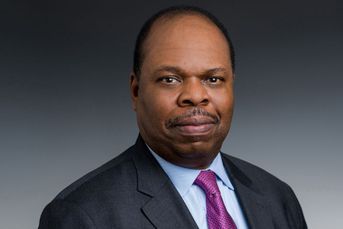Despite industry fears, DOL’s fiduciary rule is just more of the same
Scan of recent orders and reports from SEC, Finra shows the advice industry is already feeling the effects of fiduciary.
Executives and attorneys at broker-dealers of every stripe ran around this past week as if the world were about to end. Some screamed, some ranted, others stood in the corner of their office, door closed, and wept quietly.
That’s because the financial advice industry is waiting for the Department of Labor to drop its long-awaited fiduciary rule — what has become known in the InvestmentNews offices as “The Fidush.” The rule is expected to result in major new compliance costs for brokerage firms in the way of new systems and personnel.
The Fidush, which would raise investment advice standards for retirement accounts, was widely expected to be published by the end of March. It now looks as if it might be published in the beginning of April. So you can understand why the financial advice business was having a bad week.
I assert that the industry is overreacting to The Fidush. In fact, a scan of recent orders and reports from the Securities and Exchange Commission and the Financial Industry Regulatory Authority Inc. shows the financial advice industry is already being fidushed, so you’d better get used to it.
PUSH TO LOWEST-COST
One great fear investment advisers have about the impending DOL rule is that it essentially would force advisers to recommend the lowest-cost investment available for a client, regardless of the client’s history of investing, risk tolerance or objectives. The lowest-cost product, those advisers say, might be what the Department of Labor wants them to sell, but it certainly might not be the best product for every one of their clients.
But in an order this month that fined three AIG Advisor Group broker-dealers $7.5 million, the SEC made it clear that broker-dealers that don’t sell the lowest-cost mutual funds in advisory accounts could get whacked.
The settlement arises from “breaches of fiduciary duty and multiple compliance failures” by Royal Alliance Associates Inc., SagePoint Financial Inc. and FSC Securities Corp., according to the SEC order, which was issued March 14.
“From at least 2012 to 2014 [the three broker-dealers] invested advisory clients in mutual fund share classes with 12b-1 fees instead of lower-fee share classes of the same funds that were available without 12b-1 fees,” according to the order. A 12b-1 fee is an annual marketing fee paid to advisers that is supposed to be earmarked for advisers’ ongoing service and education.
As a result, the firms collected approximately $2 million in 12b-1 fees that they would not have seen had they invested those advisory clients in lower-fee share classes that were available, according to the order.
The firms failed to disclose the conflict of interest that resulted from a financial incentive to place clients with non-retirement accounts in higher-fee mutual fund share classes.
FINRA ON ROBOS
And then there is this month’s Finra Report on Digital Investment Advice, which implies brokerage firms should use a fiduciary standard when investing client money on so-called robo-adviser platforms.
Part of the report focuses on “governance and supervision of algorithms, including initially assessing the methodology of digital tools and the quality and the reliability of data inputs, as well as ongoing evaluation such as testing the tools to ensure they are performing as expected, and determining whether models used by a tool remain appropriate as market conditions change.”
Those are a lot of big words telling a compliance officer to supervise computer code. Implicit is Finra’s desire to ensure that robo-algorithms — “predetermined sets of instructions for solving a specific problem in a limited number of steps,” according to Webster’s — act as fiduciaries. What’s next? Asking a robo if it will vote for Hillary or The Donald?
(Related opinion: Can robo-advisers be fiduciaries?)
MY ADVICE: RELAX
My advice to harried financial advice and brokerage executives and attorneys who are trying to make sense of the DOL fiduciary rule is to relax. Pour yourself a cold beverage and enjoy it. Smile. You already work in an industry ruled by The Fidush.
Learn more about reprints and licensing for this article.








